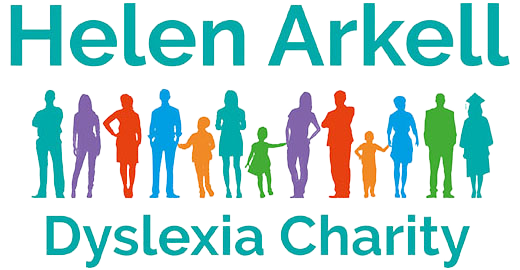
Around one in ten people are dyslexic
In 2020-2021:
- We helped over 1,000 people with dyslexia through 1:1 assessments, tuition
- coaching and consultations.
- We gave out the equivalent of over £80,000 in bursaries.
- In total, 163 individuals benefitted from free or heavily subsidised dyslexia support.
Get in touch
Fundraising and communications: Hazel Radnor at hazelr@helenarkell.org.uk
PR, Marketing and communications: marcyr@helenarkell.org.uk
Follow us on Twitter @ArkellDyslexia
Our vision
Our vision is of a day when people with dyslexia and other specific learning difficulties have the same opportunities as everyone else to achieve their goals.
News
Find our latest news here.
About Helen Arkell Dyslexia Charity
The story of Helen Arkell, who sadly passed away in 2019, and indeed the story of dyslexia support and provision in the UK, is one of a fascinating struggle against prejudice and ignorance that changed the perception of educationalists, the medical profession, and administrators alike.
Today, Helen Arkell is one of the leading specialist centres in the UK, not only directly supporting dyslexics, but training the dyslexia specialists and teachers of tomorrow.
Find our downloadable leaflet here.
What is dyslexia?
- Dyslexia is a difficulty with words; it affects a person’s ability to read and write accurately and fluently.
- Dyslexia is a learning difference that has nothing to do with intelligence. It affects people from all walks of life.
- Dyslexia can affect many aspects of learning from reading and writing to maths, memory, organisation and concentration.
- Dyslexia can range from mild to severe.
- Dyslexia can be viewed positively in many aspects of life – the very fact that people with dyslexia see the world differently, and more creatively, means that they are the people more likely to make a difference to the world.
- On the other hand, if not given the help they need, children and adults with dyslexia can often experience low confidence, low self-esteem, have fewer qualifications and end up making negative life choices that stop them from achieving whatever they would otherwise wish to achieve.
- The key is to get the right support at the right time and so help people to be the best they can be, and to improve the quality of their lives.
Famous dyslexics
At Helen Arkell we believe that people with dyslexia have a lot to offer the world. If you learn to believe in yourself, anything is possible and you can succeed on your own terms.
Some dyslexics who have succeeded and are famous are shown here but there are many less famous people with dyslexia who have succeeded across many sectors, especially creative industries.




